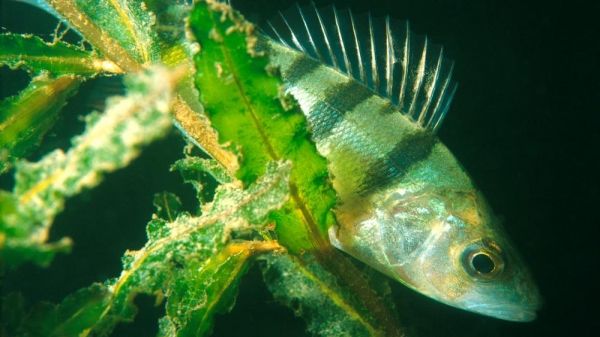Melatonin controls the body clock – high melatonin levels make us feel tired in the evening. However, the hormone also plays an important role in animals’ biological rhythms. Artificial light at night – light pollution – can suppress the production of melatonin in fish, even at very low light intensities, a finding established by researchers from IGB.
Melatonin regulates the day-night rhythm in humans and vertebrates. Organs, tissue and cells set their internal clock depending on the level of this hormone. As a result, melatonin also controls processes such as reproduction and growth. Vertebrates and humans detect differences in ambient brightness via photoreceptors, e.g. on the retina of the eye. Bright light perceived by these receptors suppresses the production of melatonin, while the hormone level is elevated during the dark phase. Artificial light at night may disturb melatonin levels.
The team of IGB researchers investigated melatonin production in European perch. During the day, all fish were exposed to daylight. At night, lighting varied depending on the group: the control group spent the night in complete darkness, whereas the other three groups were exposed to light intensities at 0.01, 0.1 and 1 lux. After ten days, the scientists measured melatonin levels at three-hour intervals over a period of 24 hours. The result: even the lowest light intensity of 0.01 lux was enough to suppress melatonin production; higher light intensities led to an increasingly strong gradual reduction of melatonin.
Read more at Forschungsverbund Berlin
Photo: Perch are sensitive to light pollution. I Photo: Michael Feierabend


